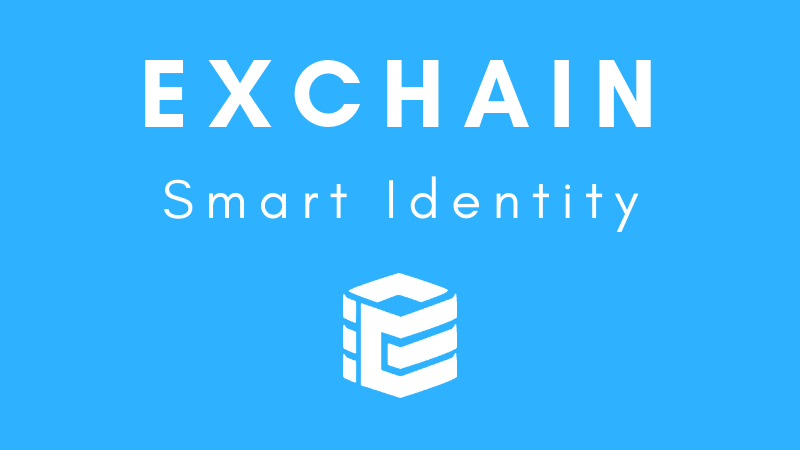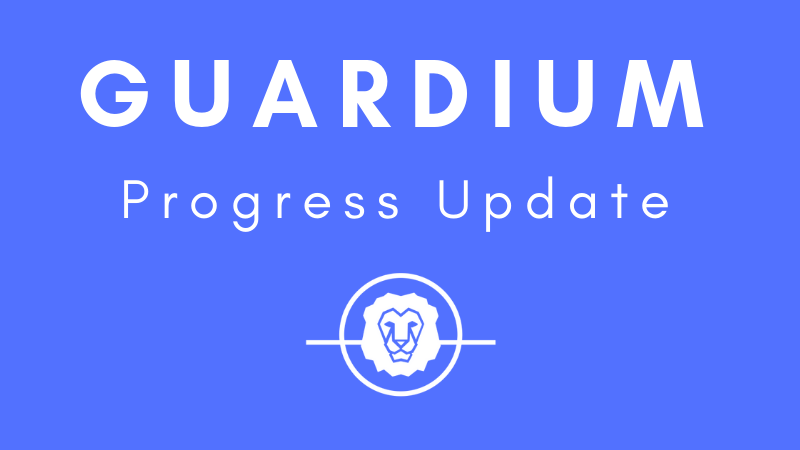
ExChain is a decentralized smart identity network with its own public chain and dApp. The platform describes itself as the “next generation of Linkedin or Dingtalk, while some believe it is the next generation of Facebook+Wechat combined together!”
ExChain offers a decentralized data exchange for enterprises and individuals to store and manage their digital identities on the blockchain. These identities are managed as publicly-viewable assets that help connect employees with employers across a spread of industries and regions around the world. All personal data assets, such as users’ credentials and work experience can be stored and accessed securely on the ExChain network, which can then be leveraged through the platform’s rewards system and decentralized experience exchange. Additionally, its suite of development tools allows businesses to setup their own private chain within ExChain’s decentralized ecology.
Problems
In ExChain’s whitepaper, the team identifies three problems that employers and job seekers face and how the platform intends to help change the status quo of the job market. First, it’s claimed that many applicants choose to falsify their resumes to get a better job or higher pay, which in turn undermines the trust of the employment process. Second, job seekers do not have an easy way of obtaining precise employment data of where they worked and for how long – nor do they have the habits or awareness to do so. Third, the employment data that can be found online is generally out of date, thus making it meaningless to employers searching for new talent. Crucially, job seekers also do not control their personal data once it submitted to job sites or sent to recruitment agencies thereby depriving people ownership of their digital identities.
Proposed Solution
In response to the above problems, ExChain aims to enable exclusive access and ownership of user data on the network, combined with a mechanism that ensures its authenticity. Additionally, ExChain aims to make it easy for people to update and control how their information is shared across its distributed network. The mechanism of how these identities will be verified on ExChain is through two digital identity standards supported by NEO’s Smart Economy: the x.509 level certificate issuing mode and the WebOfTrust point-to-point certificate issuing modes; these standards allow for verification by means of facial recognition, fingerprint, voice and SMS submissions that work together with NEO’s independent smart contract system, NeoContract.
Proof of Witness (PoWS) Consensus
ExChain also features its own consensus mechanism named Proof of Witness (PoWS) as a result of the independent design and development of its blockchain architecture. PoWS is used to validate transactions between nodes and verifies user data.
Proof of Witness is further supported by a number of supporting features and mechanisms. First, the network uses elliptic curve cryptography (ECC) to the secure data transactions between nodes. As ExChain claims to apply asymmetric encryption, both incoming and outgoing nodal data is kept secure and ECC presently offers the strongest level of encryption per bit. Another feature is ExChain’s anonymous associated tag signature to keep users identities hidden in the storage link between blocks. Finally, the platform introduces ExPower, which is described as a node nonlinear weight model. This model is a formula that rejects fraudulent information and malicious attacks on the network.
Data Assetization
The whitepaper also outlines ExChain’s process for personal data assetization. First, each user must verify their identity. After ownership is confirmed, users can access their centralized identity information without the need to surrender its ownership to a third party. Each identity is then stored securely on ExChain’s network by encrypting the users local assets. Access to this information is kept secure and at users discretion, meaning that only user-authorized parties can read the identity information. The platform then compiles the user data to create an information base that can be cross-linked for different applications; for example, a user’s social security information could be used as a proof of employment experience.
To ensure that only authorized users have access to the digital identity data, ExChain uses trustless relationship tags. Tags are used to ensure that each identity is authentic and are verified by other trustworthy users in the platform. The tag structure also establishes contextual access restrictions for different kinds of data. For example, students can verify the attendance of others in the same school, but cannot verify the same person’s work experience or job performance.
ExChain Rewards Structure
As the endorsement of users skills and experience is a key feature of the platform, ExChain will reward endorsements in the form of EXT tokens, which is the platform’s native cryptocurrency. Users can also spend EXT to speed up the verification of their digital identities on the blockchain by incentivizing endorsements. When enough users have endorsed a particular attribute, it is then written to a block on the network. In this sense, endorsements are similar to a mining or staking mechanic used by other blockchains. There is a second form of rewards offered to users for creating relationship tags between other users to verify that information is correct.
Token Sale Details
ExChain held its token sale event on March 21st, 2018 and ended on March 22nd. The total issuing amount of EXT is 10 billion, while the first phase minted 500 million into circulation; the rest of the tokens claim to be a “freeze” state pending release. Fifty percent of the revenue from the sale was used for upgrading ExChain’s ecosystem, with thirty percent in reserve and twenty percent for the platform’s founders in a long-term locked position.
The project’s inception can be traced to August 2017 that included the formation of ExChain’s R&D team and approval. In March 2018, the platform published its whitepaper and launched its website. In May, the team completed its product architecture. Then in July it released its blockchain browser and completed its “go-live test.” This month the team intends to launch its decentralized application.
ExChain lists numerous strategic partners and investment institutions in its whitepaper such as Suyuan Capital, Liaode Capital, GeekBeans Capital, Henging Fund and Shining Capital.
The platform’s team consists of Edison Chen; Shengrui Cai; Zhou Zheng; Atushi Miyamoto; Ming Liu and Ricky Jeffrey.







About The Author: Matthew North
Matthew North is a freelance writer and journalist who resides in East Asia. He spends his time writing and learning about financial technologies like the Blockchain and digital currencies. You can follow him on twitter @fintech_matthew.
More posts by Matthew North